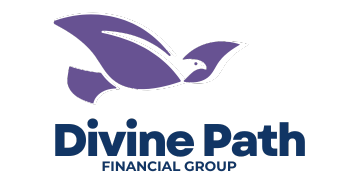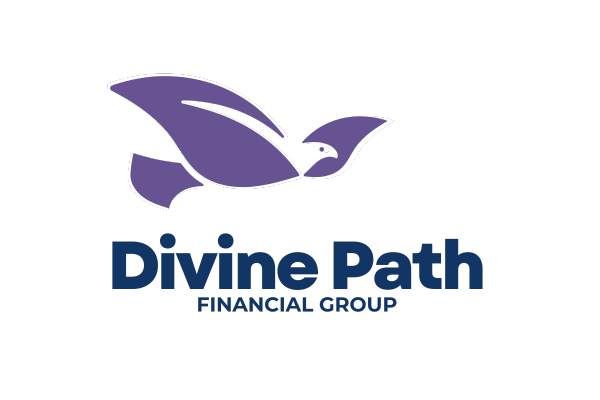In the quest for financial freedom and generational wealth, understanding the nuances of various investment vehicles is paramount. One often-overlooked tool in this journey is life insurance. While traditionally seen as a means to provide for loved ones after death, life insurance, particularly whole life insurance, offers significant tax advantages that can make it a valuable alternative for wealth building. Let’s dive into the tax codes and benefits that elevate life insurance as a strategic component of your financial plan, along with practical examples for each.
1. Tax-Free Death Benefit
One of the most significant tax advantages of life insurance is the tax-free death benefit. According to IRS code §101(a)(1), the proceeds from a life insurance policy paid to beneficiaries upon the insured’s death are generally excluded from federal income tax. This provision ensures that your beneficiaries receive the full face value of the policy, providing financial security without the burden of additional tax liability.
Example: Jane has a whole life insurance policy with a death benefit of $1 million. Upon her passing, her beneficiaries receive the full $1 million without having to pay federal income tax on this amount. This ensures that Jane’s family is financially secure during a difficult time, without the burden of additional tax liabilities.
2. Tax-Deferred Cash Value Growth
Whole life insurance policies not only provide a death benefit but also accumulate cash value over time. This cash value grows on a tax-deferred basis, similar to other retirement accounts like 401(k)s and IRAs. Under IRC §72(e), policyholders do not pay taxes on the growth of the cash value until they withdraw it. This allows the cash value to compound more effectively, enhancing the overall growth of your investment.
Example: Mark has been paying premiums on his whole life insurance policy for 15 years. Over this period, the cash value of his policy has grown to $100,000. This growth is tax-deferred, meaning Mark hasn’t had to pay any taxes on the $100,000. He can continue to let this amount grow without worrying about immediate tax consequences, similar to how retirement accounts like 401(k)s function.
3. Tax-Free Policy Loans
One unique feature of whole life insurance is the ability to take out loans against the policy’s cash value. According to IRS guidelines, these loans are not considered taxable income, provided the policy remains in force. This means you can access the cash value for various needs—such as buying a home, funding a child’s education, or investing in a business—without incurring taxes or penalties, unlike early withdrawals from retirement accounts.
Example: Susan needs $50,000 to cover her daughter’s college tuition. Instead of taking out a personal loan with high interest rates, she borrows $50,000 against the cash value of her whole life insurance policy. This loan is not considered taxable income, and Susan can repay it at her own pace. By using her policy’s cash value, Susan avoids the tax implications and penalties associated with early withdrawals from other investment accounts.
4. Tax-Free Dividends
Many whole life insurance policies pay dividends, which are considered a return of premium and are generally not taxable. As per IRC §301(c)(1), policyholders can choose to receive these dividends in cash, use them to reduce premiums, or reinvest them into the policy to purchase additional coverage. When reinvested, these dividends can further enhance the policy’s cash value and death benefit, all while maintaining their tax-free status.
Example: David’s whole life insurance policy pays him an annual dividend of $2,000. According to IRS guidelines, these dividends are not taxable. David chooses to reinvest the dividends into his policy, purchasing additional coverage that increases both the cash value and the death benefit of his policy. This reinvestment grows tax-free, enhancing the overall value of his life insurance.
5. Estate Planning Benefits
Life insurance can play a crucial role in estate planning, offering tax benefits under specific conditions. Proceeds from life insurance policies can be used to pay estate taxes, ensuring that your heirs are not forced to liquidate other assets to cover this expense. Additionally, if the policy is owned by an irrevocable life insurance trust (ILIT), the death benefit can be excluded from your taxable estate, potentially reducing estate tax liability under IRC §2042.
Example: Maria has a significant estate that may be subject to estate taxes upon her death. She sets up an Irrevocable Life Insurance Trust (ILIT) and transfers ownership of her $2 million life insurance policy to the trust. By doing so, the $2 million death benefit is excluded from her taxable estate, potentially saving her heirs hundreds of thousands of dollars in estate taxes. The death benefit can be used to pay any remaining estate taxes, ensuring her heirs receive their inheritance without financial strain.
6. Income Tax-Free Living Benefits
Certain life insurance policies offer living benefits riders that allow the policyholder to access a portion of the death benefit in cases of terminal or chronic illness. These benefits are typically income tax-free under IRC §101(g), providing financial support during challenging times without the burden of additional taxes.
Example: John is diagnosed with a terminal illness and needs funds for medical treatment. His whole life insurance policy includes a living benefits rider that allows him to access $100,000 of his death benefit while still alive. According to IRS guidelines, this $100,000 is income tax-free. John uses the funds to cover his medical expenses, providing financial relief during a challenging time without adding to his tax burden.
Conclusion
Life insurance, particularly whole life policies, offers a range of tax advantages that can make it a powerful tool for wealth building and financial planning. From tax-free death benefits and tax-deferred cash value growth to tax-free policy loans and dividends, life insurance provides unique benefits that other investment vehicles often lack. By understanding and leveraging these tax codes, you can enhance your financial strategy, ensuring long-term security and prosperity for yourself and your loved ones.
At Divine Path Financial Group, we specialize in helping our clients navigate these complexities and incorporate life insurance into their broader wealth-building strategies. Contact us today to learn more about how life insurance can be a cornerstone of your financial future.
_________________________________________________________________________________________________
By understanding the tax advantages of life insurance and seeing how they apply in real-life scenarios, you can better position yourself for a financially secure future while providing a lasting legacy for your family.
Glossary of Tax Codes Related to Life Insurance
Understanding the tax codes that impact life insurance can help you make informed decisions and maximize the benefits of your policy. Here’s a glossary of key tax codes every reader should know:
1. IRC §101(a)(1) – Tax-Free Death Benefit
This section of the Internal Revenue Code (IRC) states that life insurance death benefits paid to beneficiaries are generally excluded from federal income tax. This ensures that the proceeds from the policy go directly to your loved ones without being reduced by taxes.
2. IRC §72(e) – Tax-Deferred Cash Value Growth
Under this code, the cash value that accumulates in a whole life insurance policy grows on a tax-deferred basis. This means you do not pay taxes on the gains as long as they remain within the policy. Taxes are only due when the cash value is withdrawn.
3. IRC §72 – Tax-Free Policy Loans
According to this section, loans taken out against the cash value of a life insurance policy are not considered taxable income, provided the policy remains in force. This allows policyholders to access funds without incurring tax liabilities.
4. IRC §301(c)(1) – Tax-Free Dividends
This code indicates that dividends paid on participating whole life insurance policies are considered a return of premium and are generally not subject to federal income tax. Policyholders can receive these dividends in cash, use them to pay premiums, or reinvest them into the policy.
5. IRC §2042 – Estate Inclusion of Life Insurance Proceeds
Under this code, life insurance proceeds are included in the taxable estate of the deceased if they had any incidents of ownership in the policy at the time of death. To exclude the death benefit from the taxable estate, the policy must be owned by an irrevocable life insurance trust (ILIT).
6. IRC §101(g) – Income Tax-Free Living Benefits
This section allows for living benefits riders, which let policyholders access a portion of their death benefit in cases of terminal or chronic illness. These benefits are typically income tax-free, providing financial support during challenging times without additional tax burdens.
Additional Terms
7. IRC §7702 – Definition of Life Insurance
This code defines the criteria that a contract must meet to qualify as life insurance for federal tax purposes. It includes guidelines on cash value accumulation and the ratio of cash value to death benefit.
8. IRC §264 – Deduction for Interest on Life Insurance Loans
According to this code, interest on loans taken out against a life insurance policy is generally not deductible if the policy covers the life of any person who is an officer or employee of, or financially interested in, the policyholder.
9. IRC §72(v) – Tax Treatment of Certain Policy Distributions
This section provides guidance on the tax treatment of distributions from life insurance policies, including withdrawals and policy surrenders, ensuring that gains are taxed appropriately.
Understanding these tax codes can help you make the most of your life insurance policy, ensuring it serves as a valuable tool in your wealth-building strategy. If you have any questions or need further clarification, feel free to contact Divine Path Financial Group. We’re here to help you navigate the complexities of life insurance and make informed decisions for your financial future.





